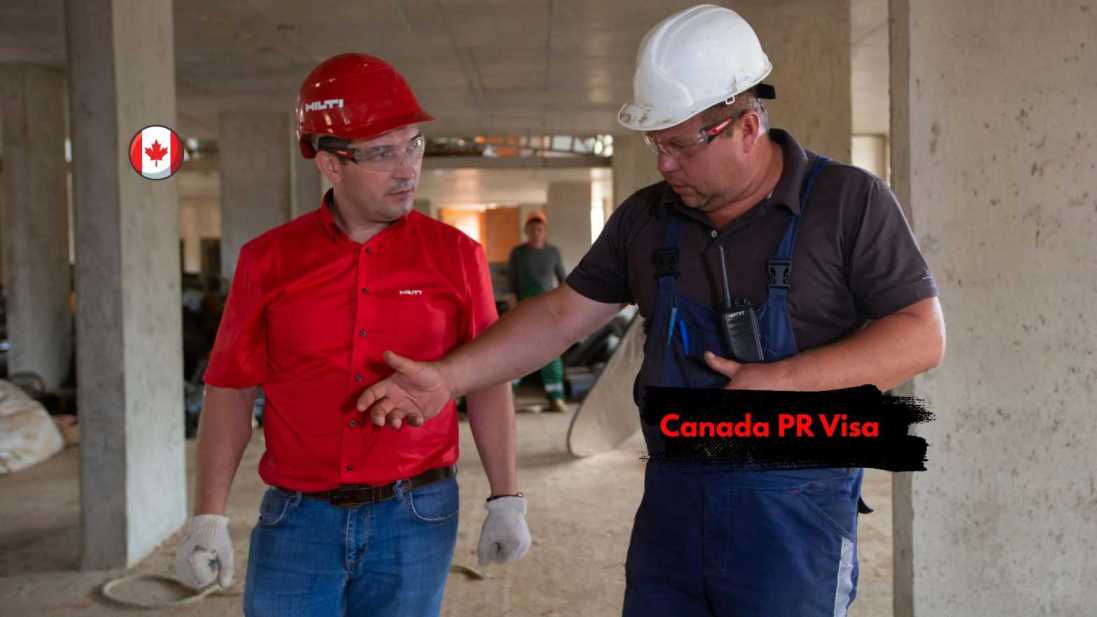Those who are planning to get Canadian PR big updates from Canada IRCC 2025. Canadian Immigration added a new category in the home care child program for international immigrants. There is a big chance for foreign migrants to get Canadian PR for this particular program. The home Child care immigration program helps individuals to settle down in Canada and get Canadian PR cards. There are many pathway programs under Canadian immigration to get skilled workers from inside and outside Canada. The home care child immigration program plays a key role in fulfill the manpower requirement. In this blog we will discuss all points which are required for Home care child immigration program application.
Big updates from Canada IRCC 2025

Home care child immigration program!
This program is also known as a caregiver immigration Canada program. There is a huge demand for caregivers in Canada who can provide assistance to the children, elders and disabled people. The home Child care immigration program allows international immigrants to settle and work as caregivers and help Canadian families. Canadian Immigration gives opportunities to foreign workers to get temporary work permits and after workers can apply for Canada PR card according to their profile. Those who are interested in getting a Canadian PR card this program will help you to fulfill your dreams. We will also discuss more about home care child immigration programs.
Eligibility criteria for Home care child program!
Valid job offer is key document for home care child immigration program application. Applicants must have a valid job offer letter from a Canadian family which allows applicants to work as caregivers.
Language Proficiency: Applicants are required to demonstrate proficiency in English or French, as these are the official languages of Canada.
Educational and Experience Requirements: Applicants must meet specific educational qualifications (often a high school diploma) and experience requirements. Usually, a minimum of 6 months of caregiver training or 1 year of work experience in child care is required.
Transition to Permanent Residency: After working for a specific period (usually two years), caregivers can apply for permanent residency through the Canadian Experience Class (CEC) under the Express Entry system. This program provides a pathway for caregivers to become permanent residents once they have gained sufficient work experience.
Immigration Pathways for Home Care Workers!
The Canadian immigration system offers several options for foreign workers who come to work as caregivers, especially those in child care, elder care, or other home care services. The two main categories that foreign caregivers may fall under are:
-
Live-In Caregiver Program (LCP): Historically, the Live-In Caregiver Program allowed caregivers to live with their employers and care for children or elderly individuals. However, this program was closed to new applicants in 2014. The current version of the caregiver program, under the Home Care Child Program, does not require workers to live with their employers, providing more flexibility.
-
Home Child Care Provider Pilot & Home Support Worker Pilot: These pilots allow caregivers to apply for permanent residency. Applicants need to work in Canada as caregivers for children or support workers for elderly individuals or those with disabilities. After working for a certain period (24 months for Home Child Care Providers), caregivers can transition to permanent residency status.
Immigration Requirements!
To participate in the Home Care Child Program, potential immigrants must meet a set of specific immigration criteria:
- Valid Job Offer: You must have a job offer from a Canadian employer who is willing to hire you as a caregiver for children. The job must comply with Canadian labor laws, including wage standards and working conditions.
- Medical Examination: Applicants may be required to undergo a medical exam to ensure that they do not have any medical conditions that could pose a risk to the health of Canadians.
- Criminal Background Check: Immigration applicants need to provide a police certificate to demonstrate they do not have any criminal history.
4. Pathway to Permanent Residency
After working as a caregiver in Canada for a set amount of time (usually two years), caregivers may be eligible to apply for permanent residency. One of the most common ways is through the Express Entry System, which selects candidates based on a Comprehensive Ranking System (CRS). Candidates with Canadian work experience, such as those working under the Home Child Care Program, are typically awarded additional points.
Additionally, caregivers can apply under other immigration pathways, including:
- Provincial Nominee Programs (PNPs): Some provinces have specific programs that can help caregivers transition to permanent residency.
- Family Sponsorship: If a caregiver’s family member is a Canadian citizen or permanent resident, they may be able to sponsor the caregiver for permanent residency.
Challenges and Considerations!
While the Home Care Child Program offers great opportunities for immigration to Canada, there are some challenges for applicants to consider:
- Work-Life Balance: The work of caregiving can be physically demanding and emotionally taxing. It’s important to assess personal suitability for such a role.
- Employment Market Conditions: Availability of jobs and employer willingness to hire caregivers can vary depending on geographic location within Canada.
- Long Wait Times: The process of transitioning from temporary work status to permanent residency can take time, especially with the complexity of immigration applications.
Conclusion
The Home Care Child Program is an essential part of Canada’s immigration strategy, providing support to families in need of childcare while offering foreign workers a pathway to permanent residency. By fulfilling the labor gap in caregiving roles, the program helps address Canada’s aging population and growing childcare needs. However, it’s important for prospective applicants to carefully navigate the eligibility requirements and understand the commitments involved in caregiving roles.
As a foreign worker considering this pathway, taking the time to gather information and possibly seek advice from immigration consultants or legal experts can help ensure a successful immigration journey to Canada.
Also Read-





I just want to confirm that IRCC approved one module retake in IELTS for PGWP ??